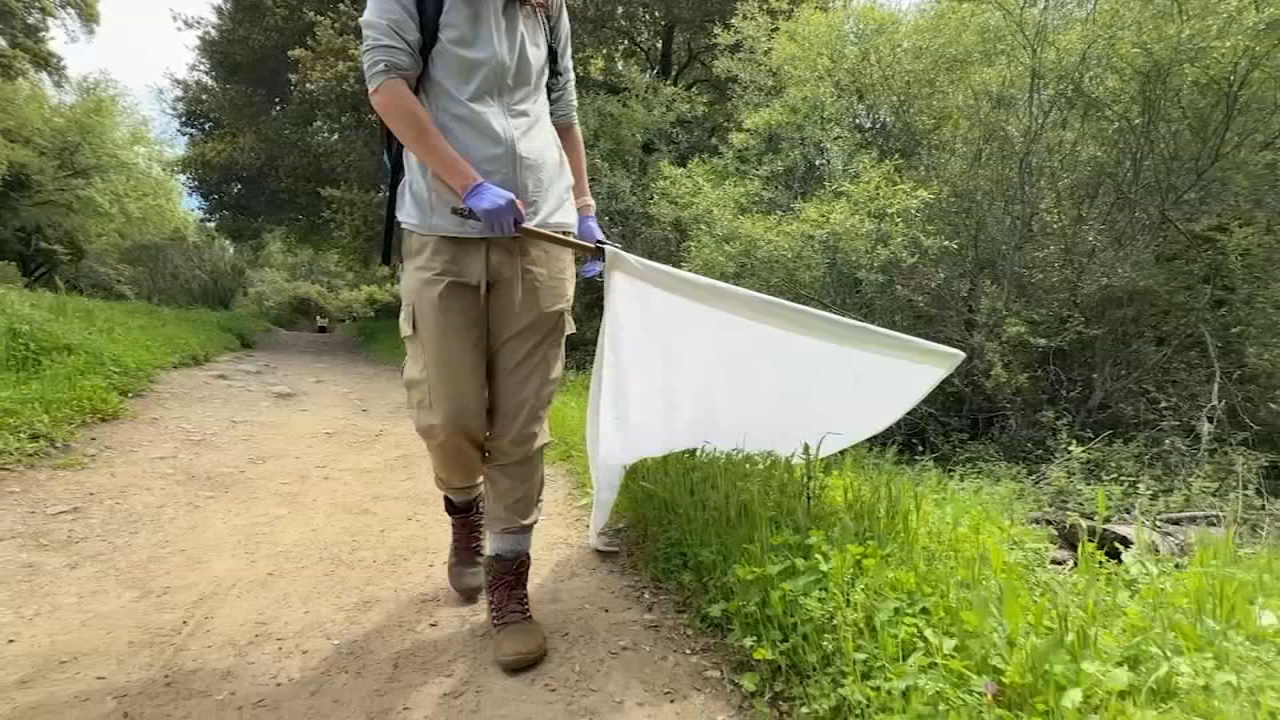I-Team: Super Bowl puts strain on homeless in San Francisco

SAN FRANCISCO (KGO) -- The Super Bowl and steady rains have put increased pressure on thousands of homeless people in San Francisco. City officials insist they are not trying to hide San Francisco's homeless population during the Super Bowl, but our I-Team cameras have seen crews clearing streets again and again. We've also seen them using a tactic that makes it even harder for homeless people to get off the street.
The police sweep begins well before dawn. We watched one officer tell a homeless person, "So, when the time comes and you got to move, we're going to ask you to move."
Homeless people who found shelter from rains under San Francisco's 101 Freeway need to find a new spot.
Adam told us, "They told us that we have to be outta here within the next 20 minutes or the cops were going to start arresting people."
San Francisco police and city workers have been clearing homeless camps away from key areas, like a freeway on-ramp that heads south to the Super Bowl.
Streets were transformed overnight, from crowded with tents to empty. A DPW worker told us, "My job is to clean up, that's it. I can't move the people, got officers for that. When they see us coming, they just start packing up. "
Kathy Liautaud used to own a three-bedroom house in Millbrae, but divorce landed her on the street: "You try and gather up all your stuff and throw it into a cart, if you're lucky enough to have found a cart."
We wanted to ask San Francisco Mayor Ed Lee about his plans for the homeless, in light of the big game. We met him at the opening of Super Bowl City.
Noyes: "Is there a special push to hide the homeless for the Super Bowl?"
Lee: "No, I don't think we're hiding anybody. This is a city of a lot of tolerance, but we do want to get people off the streets. I mean that is our ultimate and day-to-day goal."
But homeless advocates say the tactics are having the opposite effect. Dustin Edwards got a $100 citation for blocking the sidewalk. He told us, "The police showed up and basically just wrote it out for me because I was here on the sidewalk."
He doesn't know how he'll pay.
Kelley Cutler has been doing homeless outreach for 15 years. Cutler told the I-Team, "We're always encountering people with citations."
One man named "Anthony" said, "I got about 15 tickets." Another told us, "Right now, 7." And "Ronald" said, "They give you a ticket and you're told to move."
According to Jennifer Friedenbach of the Homeless Coalition, citations are up 20 percent over last year.
Friedenbach: "What happens is they can't pay them, they go to warrant. If they're on the housing wait list, they lose their place on the wait list."
Noyes: "It keeps them homeless."
Friedenbach: "It keeps them homeless, and the wait list is closed so you can't back on the wait list."
And if they don't pay the citations, they face higher fines or jail time. Homeless advocates say the citations and the sweeps are ways of keeping homeless people on the run.
Lee told us, "If you decide you still want to be on the streets, then we're going to ask you that this area has to be used for our Super Bowl facilities so that we can actually make the money for the general fund, and provide the services that we pay for."
For Liautaud, it's one more eviction: "Homeless people have become more of a problem. I guess we sort of represent that the city is not as successful at housing everybody and so, if the tourists don't see it, all the better."
Even though San Francisco has many programs that help homeless people, it leads the state in anti-homeless laws. In fact, several studies have put San Francisco in the top 10 of the meanest cities for the homeless.
Click here for more stories and videos by Dan Noyes and the I-Team.












